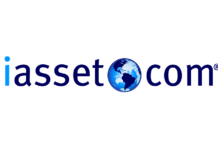EMC Corporation, the world leader in information infrastructure solutions, today released a new report from the Leadership Council for Information Advantage that explores how the use of public and hybrid cloud computing services is transforming information governance risk factors and will increasingly challenge IT creativity in developing new strategies for policy compliance and enforcement.
Enterprises moving to cloud computing are looking to move to the private cloud first. According to a CIO Market Pulse Survey conducted by IDG Research Services, three quarters of IT organizations are running or plan to deploy applications in a private cloud environment. Private cloud helps deliver lower IT costs, improved quality of service and greater business agility. In addition, private cloud can provide better control and more secure access to corporate information. Information governance policies in place today can be leveraged in private cloud environments, where information and applications are still under direct control of IT. As organizations move their applications to the public cloud or adopt a hybrid cloud approach in which IT services are delivered through a mix of internal cloud resources and external service providers, CIO concerns around information management and governance rise in importance. Yet, only 34 per cent of the organizations surveyed by IDG have a governance policy for cloud-based information.
Nearly a third admit they are not at all confident in their preparedness for managing information in the public cloud and 57 per cent believe their organizations need to spend more time defining a proactive information management and governance strategy.” “While the cloud presents tremendous opportunities to improve the efficiency, flexibility and cost of delivering IT services, it also compels us to manage information in new, more creative ways,” said Mark Lewis, Chief Strategy Officer of EMC’s Information Infrastructure Products Business. “If IT fails to embrace information governance strategies that span enterprise, private cloud and public cloud infrastructures, their efforts to leverage information for business advantage will never be fully realized.” In the second report from the Leadership Council for Information Advantage titled, “Creating Information Advantage in a Cloudy World: Intelligent Governance Strategies for Cloud Agility,” global IT leaders identified four emerging conditions that can complicate the flow and value of information in hybrid and public clouds. These include: * Unchecked proliferation of incompatible cloud platforms and services * Fragmentation of an enterprise’s information architecture through isolated data and content within the clouds * Escalating potential for vendor lock-in * Complex chains of custody for information management and security.
The report also provides strategies for adapting corporate information governance policies to the cloud’s unique conditions. Specific guidance includes: * Own the information, even if you own nothing else. Assert your organization’s right to own the information, even if you don’t own the infrastructure, application or service associated with that information. * Hope for standards, but prepare to integrate. Lay the strategic groundwork for future data integration activities today. * Control cloud platform proliferation. Look for shared requirements in standardized business functions, such as finance, HR and CRM, and consolidate services organization-wide on a limited number of platforms. * Make information “cloud ready.” Encrypt information and reorganize data sets so they’re accessible and usable across multiple platforms. * Master solution integration. Shift the IT team’s mindset from owning and operating IT systems to becoming master information service integrators. “Cloud computing offers tremendous scale, mobility and agility,” said council member Sanjay Mirchandani, who is also EMC’s Senior Vice President and Chief Information Officer.
“However, if information governance and compliance policies do not evolve in the cloud, it can create complexity in your IT environment. IT professionals need to spend time defining these policies so there are rules for capabilities, such as information mobility, to satisfy business demands.
This allows you to integrate your IT policy governance and compliance efforts into your organization’s broader governance, risk and compliance strategy.” About the Leadership Council for Information Advantage The Leadership Council for Information Advantage is a group of accomplished IT executives from a variety of industries that are successfully using information to revolutionize how they compete and do business.












